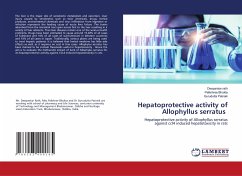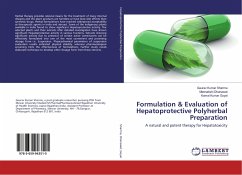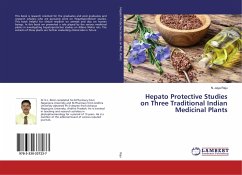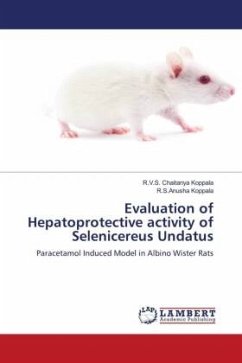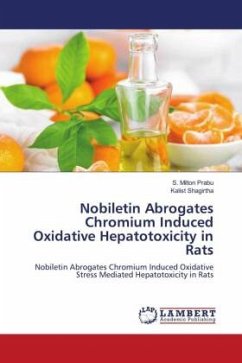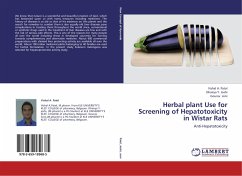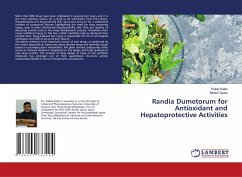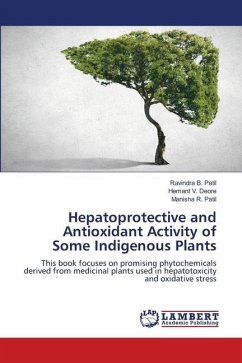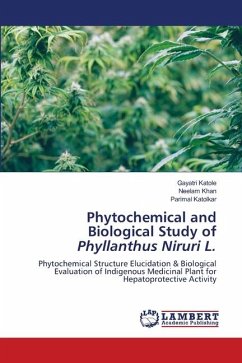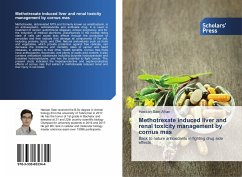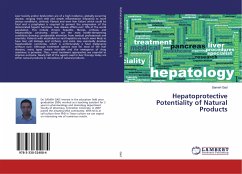
Hepatoprotective Potentiality of Natural Products
Versandkostenfrei!
Versandfertig in 6-10 Tagen
37,99 €
inkl. MwSt.

PAYBACK Punkte
19 °P sammeln!
Liver toxicity and/or dysfunction are of a high incidence, globally occurring disease, ranging from mild and simple inflammation (hepatitis) to more serious conditions, cirrhosis, fibrosis and even liver failure which could be fatal and a prophylaxis is required to prevent the progression of the deteriorated hepatic functions. Liver disease afflicts over 10% of the world population. This include chronic hepatitis, fibrosis, cirrhosis and hepatocellular carcinoma, which are the most health-threatening conditions drawing considerable attention from medical professionals and scientists. Patients ...
Liver toxicity and/or dysfunction are of a high incidence, globally occurring disease, ranging from mild and simple inflammation (hepatitis) to more serious conditions, cirrhosis, fibrosis and even liver failure which could be fatal and a prophylaxis is required to prevent the progression of the deteriorated hepatic functions. Liver disease afflicts over 10% of the world population. This include chronic hepatitis, fibrosis, cirrhosis and hepatocellular carcinoma, which are the most health-threatening conditions drawing considerable attention from medical professionals and scientists. Patients with alcoholism or viral hepatitis are much more likely to have liver cell damage and cirrhosis, and some may eventually develop hepatocellular carcinoma, which is unfortunately a fatal malignancy without cure. Although treatment options exist for most of the liver diseases, many types remain incurable and the emergence of drug resistance is pervasive. Thus, novel treatment approaches are essential to improve outcome. Nearly half of the agents used in liver therapy today are either natural products or derivatives of natural products.



